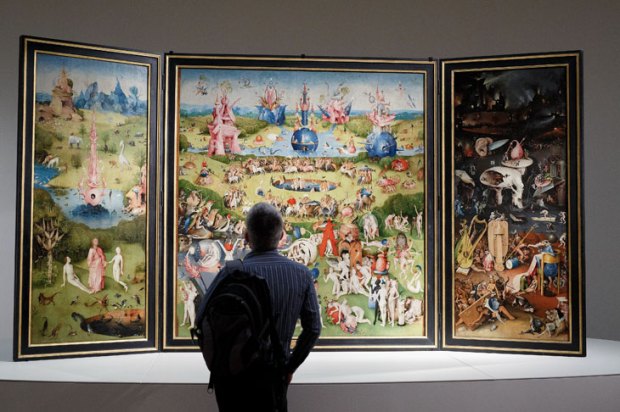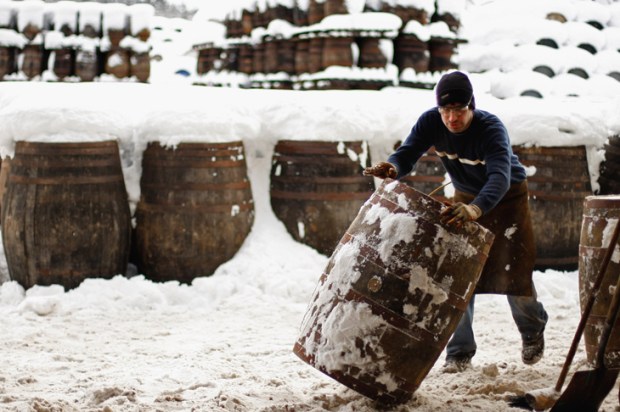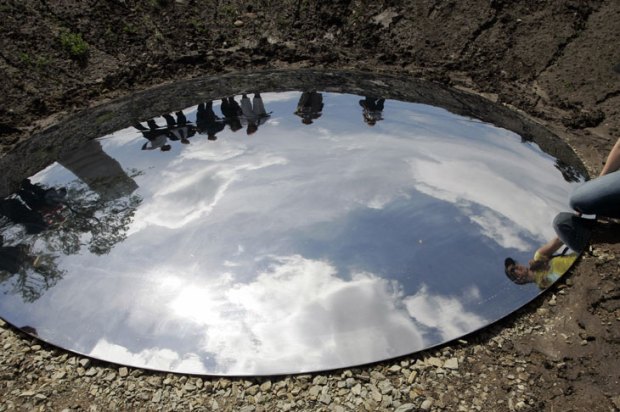I remain in rehab following the election nightmare. When the all-shining, coiffed, permed and waxed Abbott family appeared at the victory celebration at the Four Seasons Hotel in Sydney, I apparently yelled, ‘The Kardashians are taking over the Lodge,’ before slumping into PET (Post-Election Trauma). I discharged myself from the intensive care wing last week after convincing doctors that my attack of Abbottphobia was manageable. They recommended a regimen of stress-free home care but made me sign a guarantee that I would continue my medication of three repositories a day. It’s a bitter pell, oops, pill to swallow.
Worse was to come. Sophie Mirabella’s potential loss in the seat of Indi has left me inconsolable. If anyone was going to bring the Coalition undone in its first term it was dear Sophie in the improbable role of minister for industry, innovation and science. The baton of self-destruction now passes to Employment Minister Senator Eric Abetz from Tasmania. I’m confident the Tassie tiger will rise to the occasion. I suffered a minor relapse when Bronwyn Bishop was reportedly fighting to remain in the Coalition’s first Cabinet as Minister for Ageing. As protection against the prospect of home visits, I fixed a notice to the front gate saying: ‘Please don’t enter until all dogs are tethered.’ To my considerable relief she has become Madame Speaker, or as I prefer to call her Madame Lash.
We’re moving home again. Since 1986 we’ve occupied ten different rented apartments in Sydney plus three in London, an average of two years in each place. The biggest task is reducing the size of our library of some 7,000 books. Friends advise: ‘You must do a book cull.’ But the word ‘cull’ means a selective slaughter of animals such as deer, kangaroos, flying foxes or whales. I could never ‘cull’ books because they are precious possessions which have given so much delight. We are handing them on to libraries, friends and bookshops so that others can share the same pleasure. I have invented my own word for this process. Asked what I am doing with my books, I reply: ‘I am gleening them.’ It’s a word I’ve invented and not to be confused with gleaning which means something quite different. But it seems to work.
Sorting through private papers in filing cabinets, boxes, envelopes and folders has yielded some gems. A personal reference dated 1 March 1967 from the office of the chairman of Mirror Newspapers Ltd, states that A. Mitchell is ‘a hard worker and a strong ideas man. He has a good news sense, an attractive personality and the drive to dig deep into his assignments’. It is signed by Rupert himself. Of great professional value 46 years ago, it is now a reminder of times past. A 1999 letter from a Sun-Herald reader monstered me for an exposé of the finances of Pauline Hanson’s One Nation. ‘You remind me of a fruit bat, the only animal that does not have an anus,’ wrote an unhappy reader from Penrith. ‘They hang upside down and spew faeces out of their mouths.’ I propose to gleen that one.
John Maynard Keynes was the inspiration behind the establishment of the Arts Council of Great Britain in 1946 by Clem Attlee’s Labour government and wrote the draft of its royal charter. One of his students at the London School of Economics, H.C. ‘Nugget’ Coombs, was the driving force behind the formation of the Australia Council by John Gorton’s Liberal government in 1968 and stayed on as chairman during its dramatic expansion by Gough Whitlam. If classical economists grasp the centrality of public funding for all forms of culture, why don’t politicians? I think it is because they don’t like things they can’t control and the arts community is the top of their list of social deviants. Funnily enough the loudest denunciation of arts benevolence — $164.5 million was distributed by the Australia Council in 2011-12 — comes from conservative zealots who incongruously accept state handouts for pet projects. I’m sure another economist, Friedrich Hayek, has provided the sophistry to rationalise it all.
The Arts Council has undergone a bone-shaking reconstruction recently with new governing legislation, a new CEO — musician Tony Grybowski — a new 12-member board headed by Rupert Myer and Robyn Archer as well as the appointment of Orwellian-sounding Visual Arts and Literature Peer Assessments Panels. The changes were initiated by Simon Crean when he was arts minister, a position entrusted to Tony Burke in the dying weeks of the second Rudd government and now reassigned to the Coalition’s George Brandis. When Margaret Thatcher slashed the British Arts Council budget in the 1980s, she chided: ‘Oh, you artists, we give you money and you go on. We cut your money and you go still go on.’ I hope we don’t hear echoes of that refrain in the future. Public arts funding has been in vogue since ancient Greece, so perhaps we can get it right this time.
Taking seriously my duty to reduce car-made global pollution, I’ve bought a bicycle. ‘You’ve become a MAMIL,’ one of my children shrieked down the phone. (Mature Aged Man In Lyrca). No, I simply want to lose weight as competently as NSW Premier Barry O’Farrell, who used to be known unkindly as ‘Fatty O’Barrell’ but is now clean-shaven and a shadow of his former self. My physician feared my sudden appetite for bike-riding might signify a fresh bout of Abbottphobia and advised accordingly: ‘You can have the bike, but no Lycra.’ He looked alarmed when I replied in perfect Abbottspeak: ‘I’ll ride the bike. I will ride the bike. The bike, I will ride. I promise to ride the bike, but I’ll turn back the Lycra — provided it can be done safely.’
Got something to add? Join the discussion and comment below.
Get 10 issues for just $10
Subscribe to The Spectator Australia today for the next 10 magazine issues, plus full online access, for just $10.
Alex Mitchell is author of Come the Revolution: A Memoir.
You might disagree with half of it, but you’ll enjoy reading all of it. Try your first month for free, then just $2 a week for the remainder of your first year.













Comments
Don't miss out
Join the conversation with other Spectator Australia readers. Subscribe to leave a comment.
SUBSCRIBEAlready a subscriber? Log in